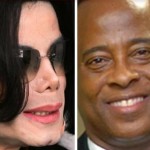This post highlights the use of possessives tht you can see in the noun + s form and the rules are explained below. There are also several sentences to give you revision using some or any
 Today s top global celebrity news is the verdict from LA s Superior Court: Michael Jackson s personal doctor, Conrad Murray has been found guilty of manslaughter. The jury s decision came after 2 days and 10 hours of deliberation as the world s media waited with baited breath. However, they won t know how long he will spend in prison until November 29th when Murray s sentence will be handed down. He could be given up to 4 years jail time.
Today s top global celebrity news is the verdict from LA s Superior Court: Michael Jackson s personal doctor, Conrad Murray has been found guilty of manslaughter. The jury s decision came after 2 days and 10 hours of deliberation as the world s media waited with baited breath. However, they won t know how long he will spend in prison until November 29th when Murray s sentence will be handed down. He could be given up to 4 years jail time.
In the judge s statement (sometimes called the summing up ) the doctor to the stars was described as a danger to society . That s a bit harsh, isn t it? It s not like he killed anyone oh, hold on, according to the court s ruling, he DID kill someone: and not just anyone. That someone happened to be Michael Jackson everybody s favourite one-time musical genius turned plastic surgery madman.
Michael Jackson s family wept in court as the guilty verdict was announced and later, La Toya s one-word tweet read a thousand words: VICTORY.
Outside the court, there were scenes of jubilation as the fans joy erupted into an impropmtu acapella version of Beat It . Unfortunately (or fortunately, depending on how you look at it), no recording of the fans singing exists.
Rules for s and s possessive
1. Possessive nouns with s or s are used instead of the:
The phone that belongs to Jim = Jim s phone (NOT Jim s the car, the car of Jim)
The books that belong to Sam = Sam s books
The doctor of Michael Jackson = Michael Jackson s doctor
2. After a plural noun (brothers, friends) the apostrophe ( ) goes AFTER the s:
I m going to the Jones house
The fans joy could be heard outside the court
3. Possessives are used to talk about people and animals, but not things:
John s wife / Gavin s blogs / Dan s jokes / Josh s class / Max s friend / the judge s statemnet
4. BUT with things:
The roof of my mouth (NOT my mouth s roof)
The name of the film (NOT the film s name)
5. You can use s after more than one noun:
John and Nicky s party
Mr and Mrs Smith s house
Spielberg and Lucas s latest film
6. Some time words/expressions can also have s:
Did you read yesterday s newspaper?
Tomorrow s lesson has been cancelled
Today s top celebrity news

